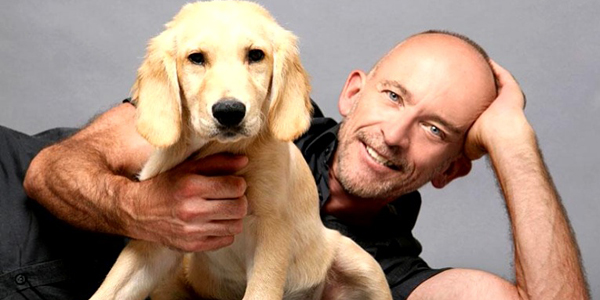5 Questions With Poet Mark Doty

Poet and university professor Mark Doty is a bona fide sensation in the poetry world, with a list of publications, honors and awards as long as his arm — which means, of course, that you probably haven’t heard of him. Poets seem fated to labor in relative obscurity, but that hasn’t stopped Doty from quietly amassing a substantial body of work and making an indelible mark on the literary scene. His free verse poems tend to combine the tender and sublime with the ordinary and mundane, with topics including a weight bench at the gym, a day when he locked himself out of the house twice, and the illness and death of his lover.
Doty is coming to NC State to give a public reading of his poetry at 7:30 p.m. Thursday, Sept. 12, in the Caldwell Hall Lounge.
In addition to receiving fellowships from the Guggenheim Foundation and the National Endowment for the Arts, Doty has won the National Book Critics Circle Award, the Los Angeles Times Book Prize and the Lila Wallace/Readers Digest Award. He was also the first American to win the U.K.’s T.S. Eliot Prize, for My Alexandria (1995). In 2008 Doty’s book Fire to Fire: New and Selected Poems won the National Book Award for Poetry.
We caught up with Doty to ask him about his most recent work, his nonfiction writing and the relationship between poetry and the sciences.
1. What can you tell us about your forthcoming book of poetry, Deep Lane? Does the collection have any unifying themes or topics?
I just finished this collection — I mean I just finished it, a week ago. The book takes its title from a road near my house in the country. I chose it not because of the road itself but because of the name, which to me suggests going down and forward at once. This book is about descending, sinking more deeply into one’s life. The poems often make use of subterranean images: earth and transformation and hidden life below. It’s concerned with a spiritual descent — a feeling of crisis, in the last five years or so of my life, and the process of finding a path forward.
2. In addition to poetry, you have also written three memoirs — Heaven’s Coast, Firebird and Dog Years — that garnered highly favorable responses from critics. Speaking as a poet, what is your relationship to the memoir genre?
Although poems can tell stories, most often they center on a flash of feeling, an incendiary, lyric moment. Poetry tends to strip context away; we may not know when something happened or what else was going on or what forces shaped the speaker’s life. Memoir is all about context. You get to stand back and examine the world around the self. A book like Dog Years tells a story about two dogs, yes, but it also includes meditations on why we love them, and it thinks about animals and language. It includes discussions of two poems by Emily Dickinson, a description of a trip to Mexico, even a chapter on 9/11. In a poem it’s hard to range so far without losing intensity. But memoir can roam, and that’s what I love about writing it.
3. You’re a university professor as well as a poet. What do you teach, and how does teaching affect your writing?
I teach creative writing workshops to advanced undergrads, and literature courses to graduate students and undergrads as well. I like to bring my students work by poets I’m interested in now, work that embodies questions I’m concerned with. Teaching connects me with younger artists. I’d rather think of myself as an artist in a community of artists, a reader in a community of readers. That keeps things fresh.
4. You teach at Rutgers-New Brunswick, which, like NC State, is noted for its strength in the sciences. What — if anything — do the sciences and poetry have to say to each other?
A lot, actually. Both are means of studying reality, ways of naming and understanding the extraordinarily complicated world in which we live. “Extraordinary” is an odd word in this context, since what poetry and science both teach us is that the “ordinary” is anything but simple.
5. Many people believe that poetry isn’t for them — that it’s too abstract or intellectual to have any value in real life. What would you say to someone who feels that way?
You haven’t read the right poems yet.
Next Up
Doty says his next project is a “hybrid of memoir and literary criticism” that will explore how he sees his own life reflected in the work of poet Walt Whitman. “I want to make a book in which one poet speaks to another,” he says, “but to do so in a form that’s never quite existed before. We’ll see!”
- Categories:


